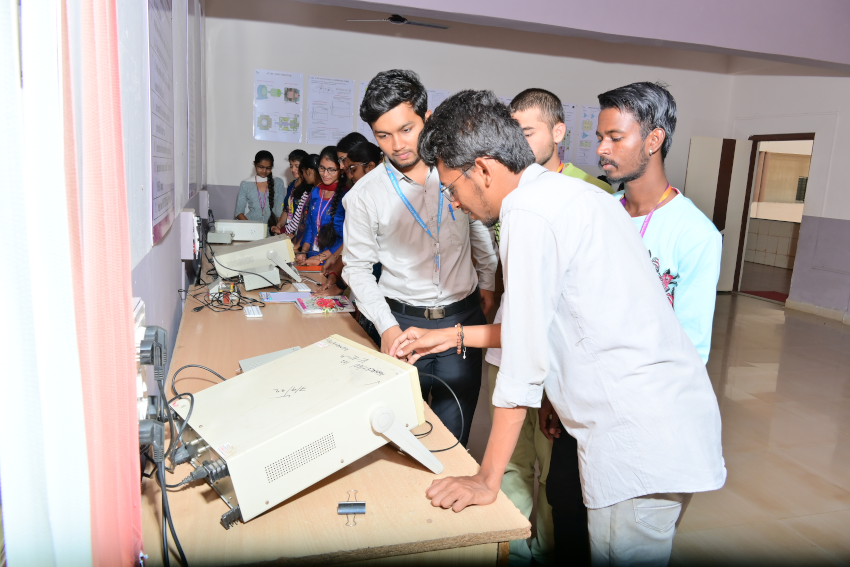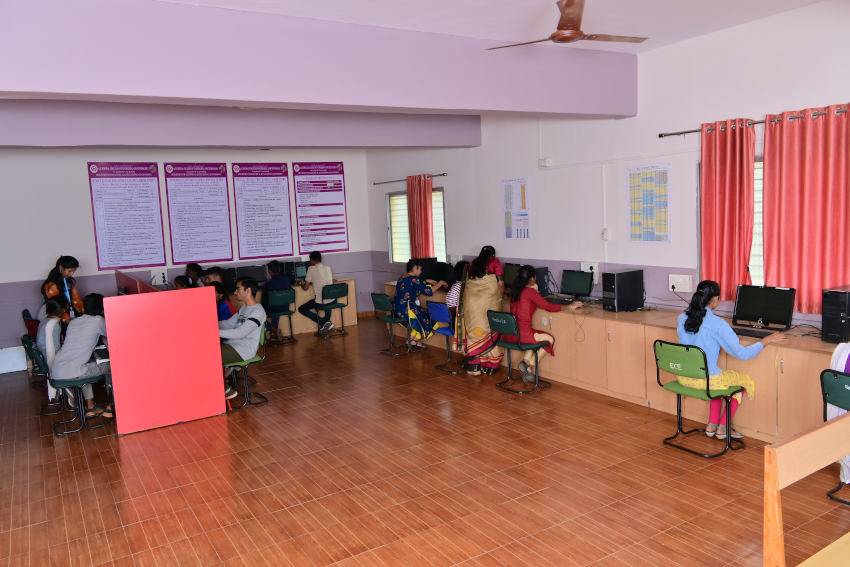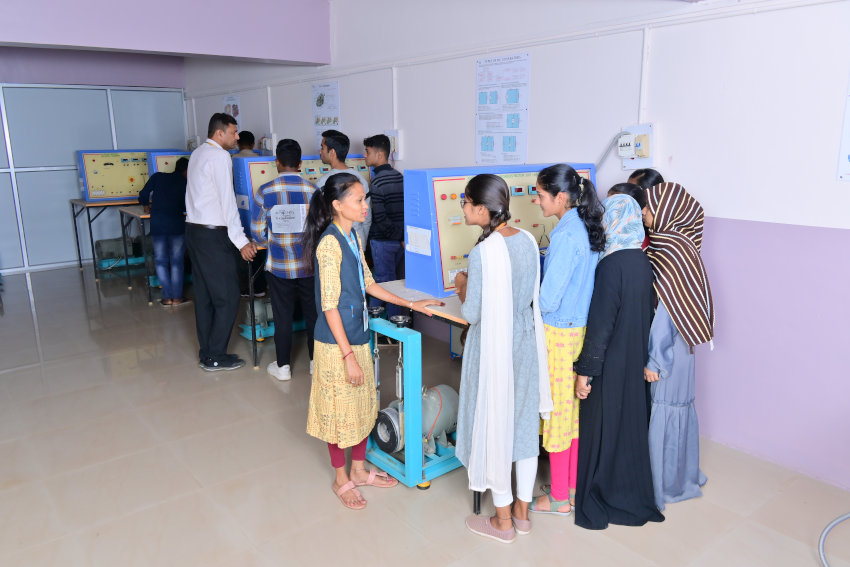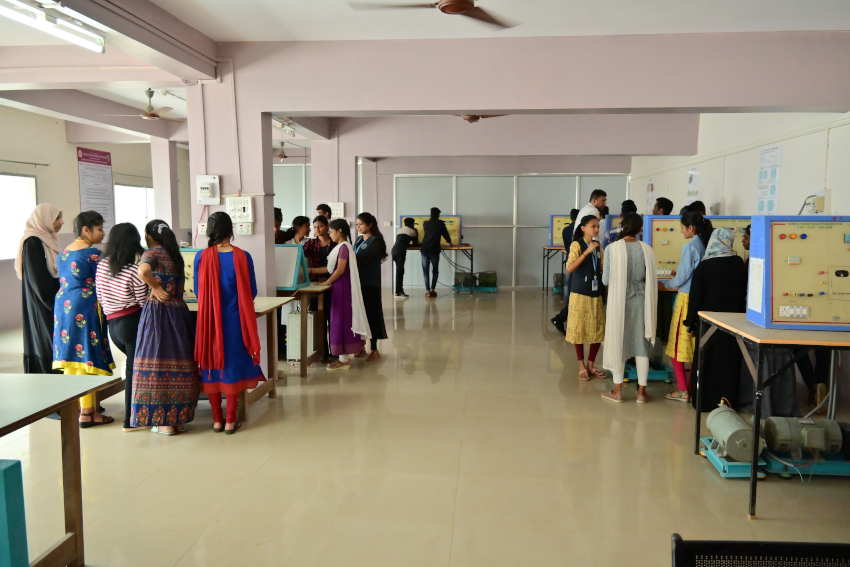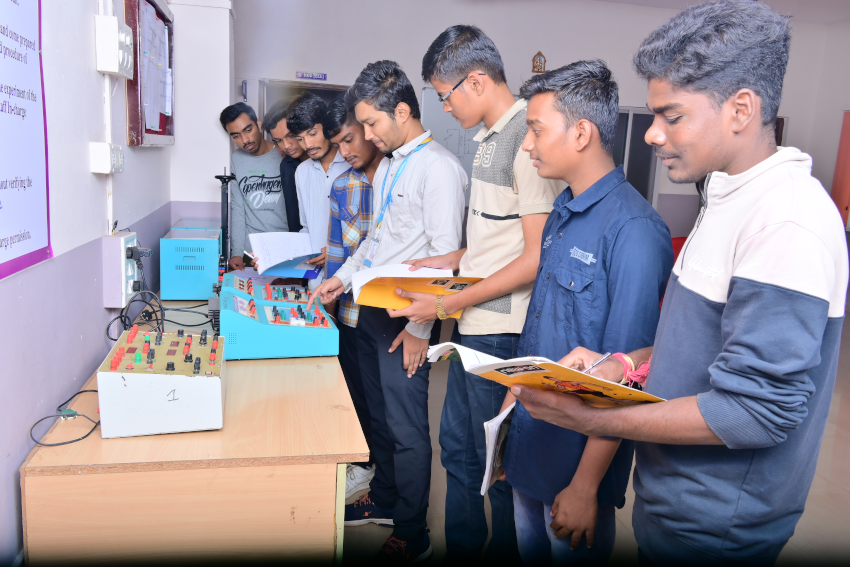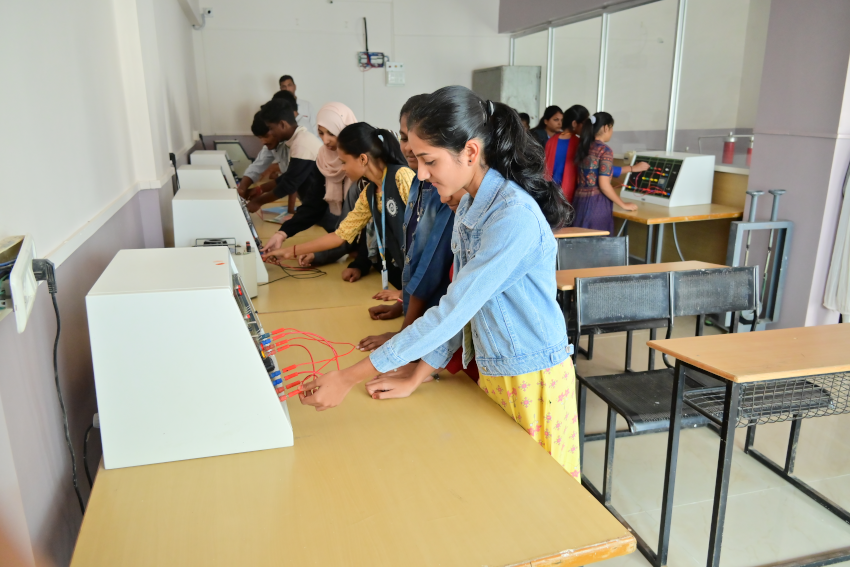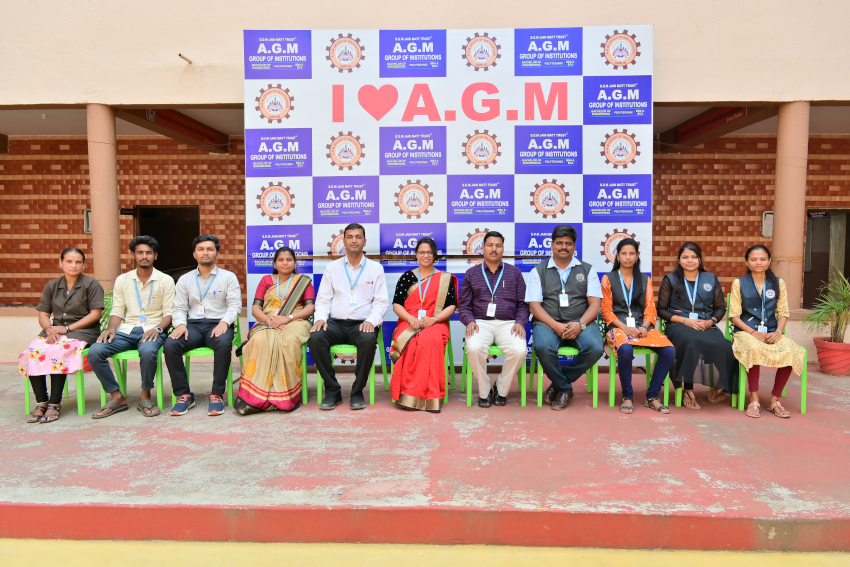- Home
-
About us
Want to change the world? At AGM we’re doing just that. When you join the AGM community, you’re part of an institution that shifts the global conversation every single day.
Read more - Academics
- Admissions
- Placement
- Facilities
- Life@AGM
- Contact us
- Navagrah Varur Hubli Karnatka Dharwad.
- Phone:+9194810 87999
- CET Code: E-199
- COMEDK Code: E-208
- Approved By AICTE
- Affiliated to VTU
Electrical & Electronic's Engineering
About Department
The Department of Electrical and Electronics Engineering is established in 2010. The department offers B.E. program with an intake of 30 students. The main focus of the department is to impart quality education, technical knowledge and technology to students with an intention of developing their personality, skill, knowledge and to face challenges in technical field.
Our Vision
To prepare the students to meet the demands of growing industries and to mould them into successful professionals, globally competent and morally upright in the field of Electrical and Electronics Engineering, contributing to nation building and progress of humanity
Our Mission
*To impart quality and value based education, enabling the students to meet the growing challenges in the industry. *To equip the students with sound technical knowledge and skills. *To enhance the skills towards practical approach..
HOD Message

Mrs.Reshma Y
Head
Department of Electrical and Electrronics Engineering
Greetings from the EEE department, AGMRCET. Electrical Engineering is the mother of all
electrical sciences. This is a compelling and broad field that plays an increasingly important role
in making a positive contribution to the betterment of society and the human condition. Our aim
is to prepare students for the continually changing, high-technology world of electrical
engineering by providing solid theoretical foundation with substantial hands-on laboratory
experience, and a curriculum that challenges students to act logically.
The department encourages students to participate in extra and co-curricular activities, sports, cultural fest and paper presentation on technical contents and seminars etc. Industrial visits, regular internships which assist the students in smooth transition from academic life to work life.
Program Outcomes(POs):
PO1: Engineering knowledge: Apply the knowledge of mathematics, science, engineering fundamentals, and an engineering specialization to the solution of complex engineering problems.
PO2: Problem analysis: Identify, formulate, review research literature, and analyze complex engineering problems reaching substantiated conclusions using first principles of mathematics, natural sciences, and engineering sciences
PO3: Design/development of solutions: Design solutions for complex engineering problems and design system components or processes that meet the specified needs with appropriate consideration for the public health and safety, and the cultural, societal, and environmental considerations.
PO4: Conduct investigations of complex problems: Use research-based knowledge and research methods including design of experiments, analysis and interpretation of data, and synthesis of the information to provide valid conclusions.
PO5: Modern tool usage: Create, select, and apply appropriate techniques, resources, and modern engineering and IT tools including prediction and modeling to complex engineering activities with an understanding of the limitations
PO6: The engineer and society: Apply reasoning informed by the contextual knowledge to assess societal, health, safety, legal and cultural issues and the consequent responsibilities relevant to the professional engineering practice
PO7: Environment and sustainability: Understand the impact of the professional engineering solutions in societal and environmental contexts, and demonstrate the knowledge of, and need for sustainable development.
PO8: Ethics: Apply ethical principles and commit to professional ethics and responsibilities and norms of the engineering practice.
PO9: Individual and team work: Function effectively as an individual, and as a member or leader in diverse teams, and in multidisciplinary settings.
PO10: Communication: Communicate effectively on complex engineering activities with the engineering community and with society at large, such as, being able to comprehend and write effective reports and design documentation, make effective presentations, and give and receive clear instructions.
PO11: Project management and finance: Demonstrate knowledge and understanding of the engineering and management principles and apply these to one’s own work, as a member and leader in a team, to manage projects and in multidisciplinary environments
PO12: Life-long learning: Recognize the need for, and have the preparation and ability to engage in independent and life-long learning in the broadest context of technological change.
PSO1: Provide real time solutions to complex Electrical and Electronics Engineering Problems to empower Industry and Society
PSO2: Enhance research skills and usage of modern tools to develop sustainable solutions.
-
2022 Scheme Co Statments
-
2021 Scheme Co Statments
-
2018 Scheme Co Statments
| Name | Qualification | Designation | Experience |
|---|---|---|---|
| Mrs. Reshma Yellapur | B.E M.Tech(Ph.D) | HOD & Assistant Professor | 12 |
| Dr.B N Patil | B.E M.Tech Ph.D | Associate Professor | 18 | Mr. Vinayaksingh Rajput | B.E M.Tech | Associate Professor | 16 |
| Mrs. Manjula Rathod | B.E M.Tech | Assistant Professor | 15 |
| Mr. Sandeep Mudakannavar | B.E M.Tech | Associate Professor | 09 |
| Mr. Sanatkumar T P | B.E M.Tech | Associate Professor | 23 |
| Ms. Rafiyabanu Badebade | B.E M.Tech | Assistant Professor | 03 |
| Mr. Ramesh Kosagi | B.E M.Tech | Assistant Professor | 01 |
| Mr. Raveendra Patil | B.E M.Tech | Assistant Professor | 01 |
| Supporting Staff | |||
| Ms. Shruti R D | Foreman | Asst. Instructor | 01 |
| Ms. Shushma S H | Diploma | Instructor | 01 |
| Mr. Satish | PUC | Electrician | 01 |
| Mr. Vishwanath | PUC | Electrician | 01 |
-
Placced Student Details
What we have
Scheme and Syllabus
Enquiry Form

Courses Offered
Quick Links
HELP & SUPPORT
Get In Touch
Address: NavagrahaTeerth,NH4-Raod Varur,Hubballi,Karnataka-581207
Phone: +(91)94810 87999
Email: principal@agmrcet.ac.in











